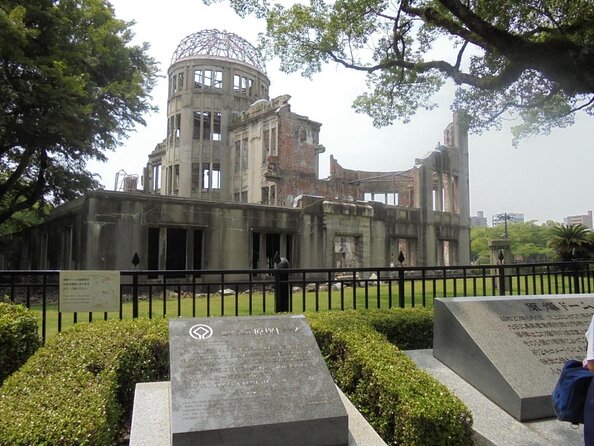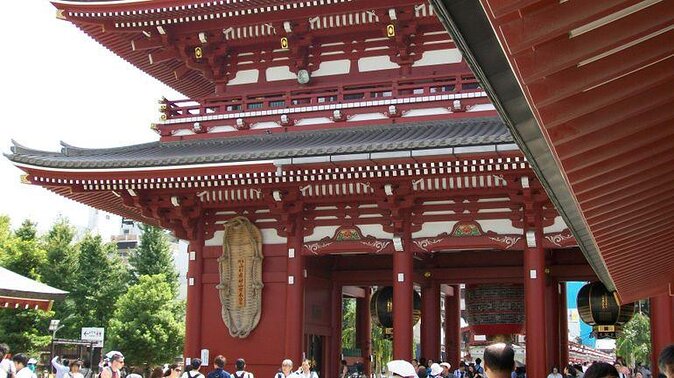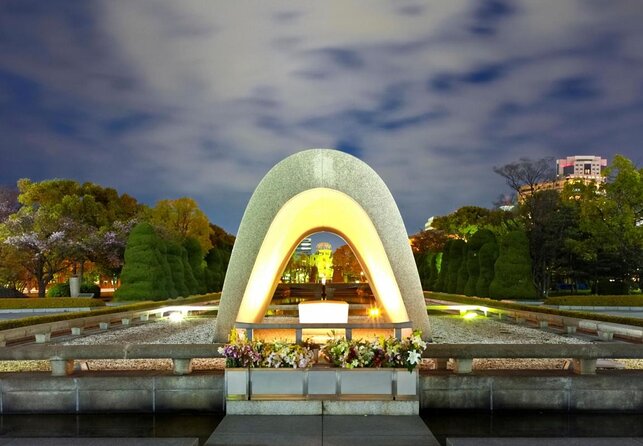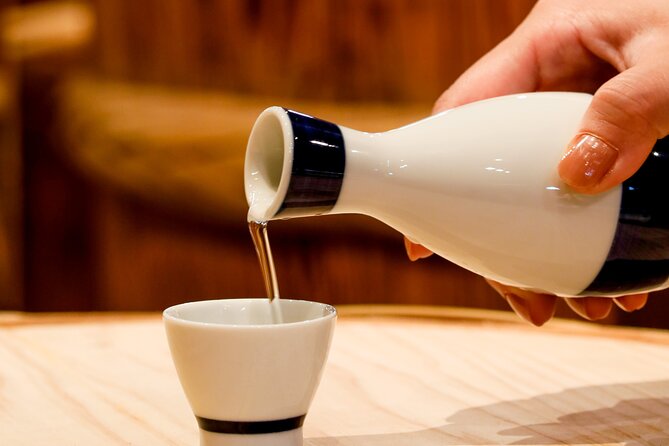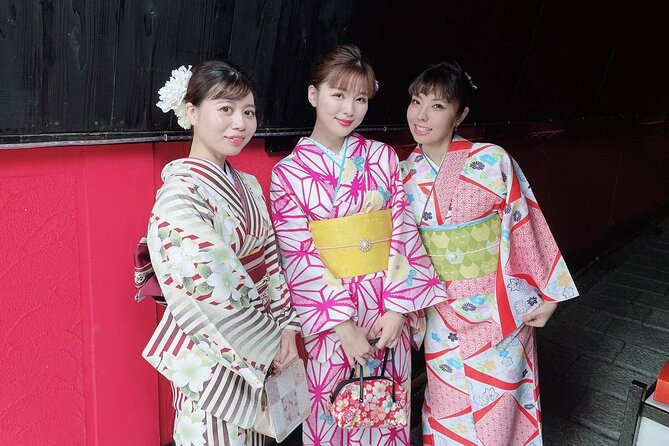In Kyoto, Japan, a captivating cultural experience awaits tea enthusiasts and curious individuals alike at the Sencha-do Japanese Tea Ceremony Workshop.
Participants have the opportunity to enjoy the fascinating history and customs of this traditional practice.
Led by experienced tea masters, attendees will learn the art of preparing and serving tea with meticulous attention to detail and mindfulness.
This workshop provides a serene and enlightening escape from the demands of daily life, allowing participants to connect with the present moment and gain a deeper appreciation for the tea ceremony.
Great News! You can reserve for free on Viator and cancel right up to the day before without paying. Click the button below to save your spot now.
Quick Takeaways
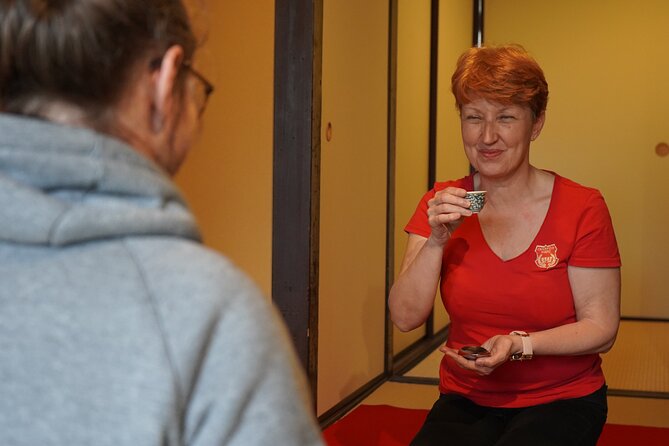
- Sencha-do is a traditional Japanese tea ceremony that dates back centuries and remains an integral part of Japanese culture.
- Careful measurement of tea leaves and water is essential in preparing Sencha tea, a type of Japanese green tea known for its health benefits.
- Traditional tea ceremony etiquette emphasizes maintaining a serene and quiet atmosphere, with participants sitting in the traditional Japanese style of seiza and practicing respect and gratitude through bowing.
- Participants in a Sencha-do workshop can explore and learn about the various tea ceremony tools used, such as the chawan, chasen, chashaku, kensui, and mizusashi.
The History of Sencha-do
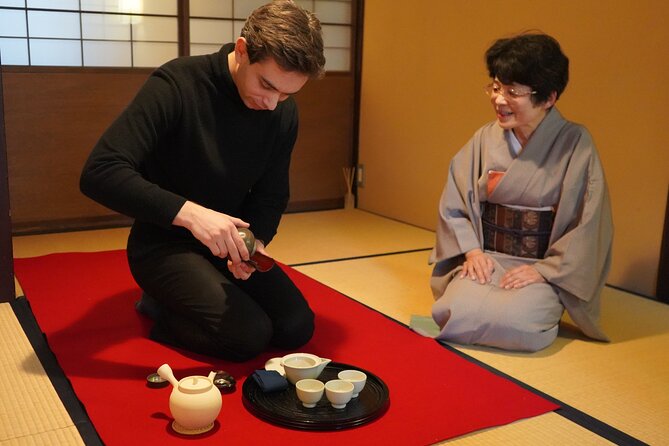
The history of Sencha-do dates back centuries and encompasses a rich heritage of tradition and knowledge.
Sencha-do, also known as the Japanese tea ceremony, has evolved over time and remains an integral part of Japanese culture.
In modern times, Sencha-do continues to be practiced and appreciated by tea enthusiasts worldwide.
The ceremony involves the preparation and serving of different types of Japanese tea, each offering its own unique flavor and characteristics.
Some popular types of Japanese tea used in Sencha-do include Sencha, which is a steamed green tea; Matcha, a powdered green tea; and Genmaicha, a combination of green tea and roasted brown rice.
These teas are carefully selected and prepared, with each step of the ceremony holding significant meaning and symbolism.
Whether enjoyed in a formal setting or as a casual gathering, Sencha-do offers a serene and meditative experience for tea lovers.
The Art of Preparing Sencha Tea
A key aspect of preparing Sencha tea is carefully measuring the tea leaves and water, as well as steeping the tea for the appropriate amount of time.
Sencha tea, known for its numerous health benefits, is a type of Japanese green tea. The tea leaves are grown in sunlight, giving them a vibrant green color and a unique flavor profile.
To prepare Sencha tea, the tea leaves are first measured and placed in a teapot. Hot water, typically around 70-80 degrees Celsius, is then poured over the leaves. The tea is steeped for about one to two minutes before being poured into cups.
The process of preparing Sencha tea is an important part of the Sencha tea ceremony, where participants can enjoy the taste and aroma of this delightful beverage while appreciating its cultural significance.
Traditional Tea Ceremony Etiquette
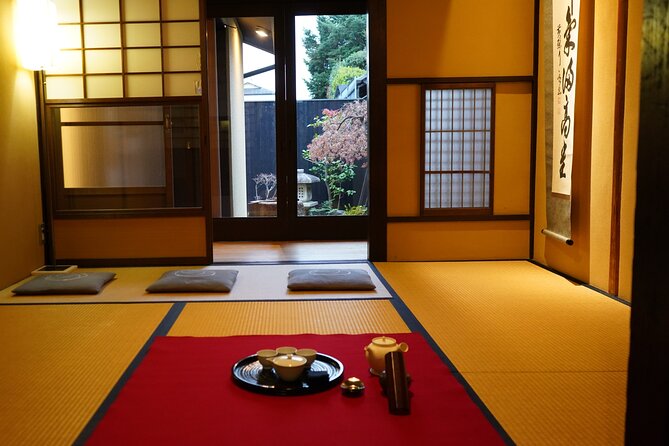
During the traditional tea ceremony, participants are expected to abide by a set of rules and guidelines in order to show respect and appreciation for the tea-making process. This emphasis on etiquette is a key aspect of the Sencha-do workshop and is deeply ingrained in Japanese culture.
The following are some of the rituals that participants are expected to observe:
- Seiza: Participants are required to sit in the traditional Japanese style of seiza, which involves kneeling with the tops of the feet flat on the floor and the buttocks resting on the heels. This posture is seen as a sign of respect and attentiveness.
- Bowing: Participants are expected to bow to each other and to the tea master as a gesture of respect and gratitude.
- Silence: During the ceremony, maintaining a serene and quiet atmosphere is crucial. Participants are encouraged to refrain from unnecessary talking or noise, allowing them to fully enjoy the tea-making experience.
Exploring the Tea Ceremony Tools
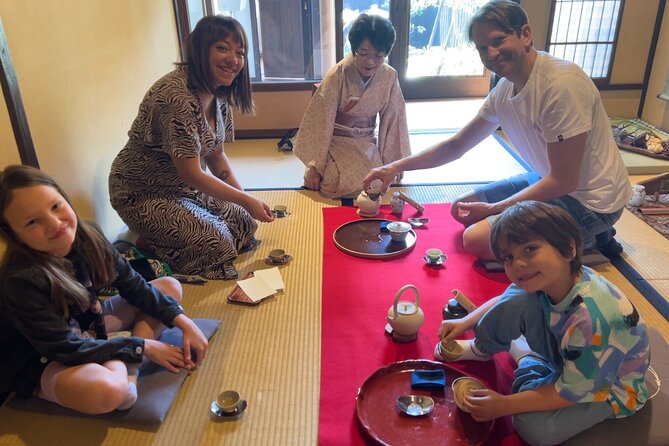
Participants can explore and learn about the tea ceremony tools used in the Sencha-do workshop. These tools play a crucial role in the Japanese tea ceremony, each serving a specific purpose and adding to the overall ritualistic experience. To convey a deeper understanding, here is a table showcasing some of the most commonly used tea ceremony tools:
| Tea Ceremony Tools | Purpose |
|---|---|
| Chawan (tea bowl) | Used for whisking and serving matcha tea |
| Chasen (tea whisk) | Used to froth the matcha tea |
| Chashaku (tea scoop) | Used for scooping matcha powder |
| Kensui (waste water container) | Used to discard used tea leaves and water |
| Mizusashi (water jar) | Holds water for brewing tea |
| Hishaku (water ladle) | Used to transfer water to the tea bowl |
While the Sencha-do workshop focuses on the Japanese tea ceremony, it is interesting to note the differences in tea ceremonies and rituals in other cultures. For example, Chinese tea ceremonies often involve multiple infusions of tea to appreciate its various flavors, while Moroccan tea ceremonies are known for their elaborate pouring technique. Each culture brings its own unique traditions and tools to the art of tea.
The Spiritual Significance of Sencha-do
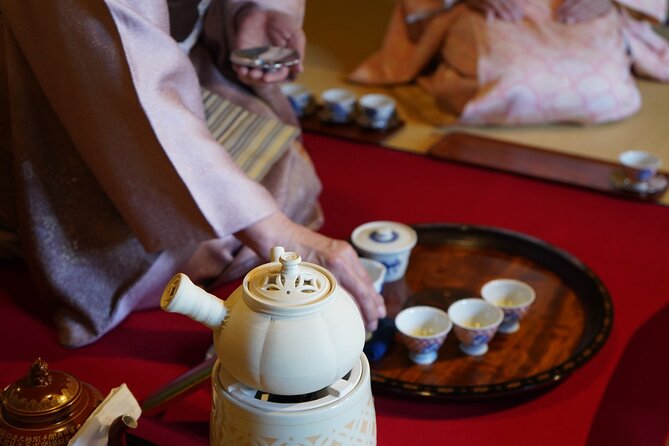
The spiritual significance of Sencha-do lies in its ability to cultivate mindfulness and foster a deep connection with nature. Through the practice of Sencha-do, participants are encouraged to be fully present in the moment, to focus their attention on the simple act of preparing and enjoying tea. This mindfulness allows individuals to quiet their minds and find a sense of inner peace.
The role of tea masters in Sencha-do is crucial, as they guide participants through the ceremony, teaching them the proper techniques and etiquette. They embody the principles of harmony, respect, and tranquility, creating an atmosphere conducive to spiritual reflection.
The importance of mindfulness in Sencha-do can’t be overstated, as it enables individuals to experience a profound connection with themselves, others, and the natural world.
Experiencing Sencha-do in Kyoto
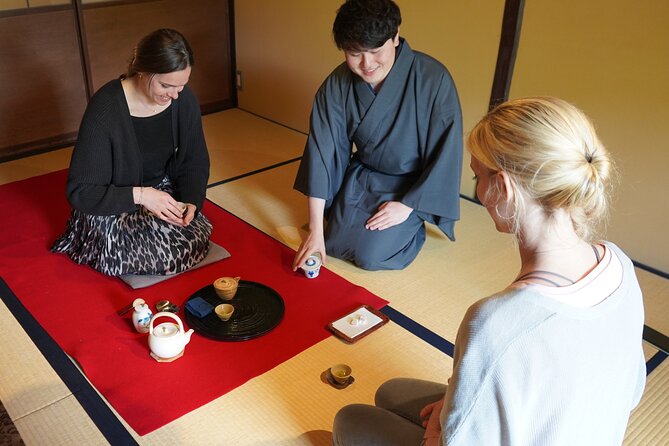
Visitors to Kyoto can fully enjoy the art of Sencha-do by participating in a hands-on workshop led by experienced tea masters.
This workshop provides a unique opportunity for individuals to learn about and experience the cultural traditions of Japanese tea culture firsthand.
you will have the chance to observe and take part in the intricate and meticulous process of preparing and serving sencha, a type of Japanese green tea.
The tea masters will guide participants through each step, from the proper way to hold and pour tea to the etiquette and rituals associated with the tea ceremony.
Through this immersive experience, participants can gain a deeper understanding and appreciation for the beauty and significance of Sencha-do in Japanese culture.
Frequently Asked Questions
Is the Sencha-Do Workshop Wheelchair Accessible?
Yes, the sencha-do workshop is wheelchair accessible and provides accommodations for disabled individuals. They prioritize inclusivity and ensure that everyone can participate in the Japanese tea ceremony experience in Kyoto.
Can I Bring My Stroller to the Sencha-Do Workshop?
Yes, you can bring your stroller to the workshop. There are no stroller restrictions mentioned. It is recommended to confirm with the activity provider for any specific guidelines regarding bringing a baby and stroller.
Are Service Animals Allowed at the Sencha-Do Workshop?
Yes, service animals are allowed at the workshop. The activity also provides accessibility options such as stroller accessibility. It is important to check the specific service animal policy and accessibility details for Sencha-do in Kyoto.
Is There a Cancellation Policy for the Sencha-Do Workshop?
Yes, there is a cancellation policy for the workshop. Participants can cancel up to 24 hours in advance for a full refund. Any changes made less than 24 hours before the workshop will not be accepted.
How Many Reviews Are There for the Sencha-Do Workshop and What Is the Overall Rating?
There are 13 reviews for the Sencha-do workshop, with an overall rating of 5.0. The workshop has received 5-star, 4-star, 3-star, 2-star, and 1-star ratings from Viator travelers.
The Sum Up
To sum it up, the Sencha-do workshop in Kyoto offers a unique opportunity for both locals and travelers to enjoy the art of the Japanese tea ceremony.
Participants can learn the history, rituals, and etiquette associated with preparing and serving tea in a serene and harmonious manner.
This workshop provides a respite from everyday life, allowing participants to find inner peace and a deeper understanding and appreciation of the tea ceremony.
It’s a memorable and enriching experience for tea enthusiasts and those curious about Japanese traditions.
Where To Stay In Tokyo
Tokyo visitor levels are currently at an all-time high so make sure to book your hotels early. Tip most hotels booked with booking.com have free cancelation so book as soon as you know your date and you can always cancel if you change your mind.

